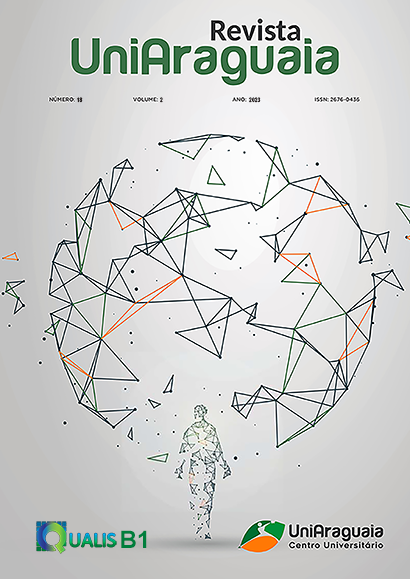SOLID INDUSTRIAL GELATIN WASTE AS A SOURCE OF NITROGEN FERTILIZATION IN MASSAI GRASS
Palavras-chave:
Forage, Megathyrsus maximus, Nitrogen, SludgeResumo
This study aimed to evaluate the effect of gelatin sludge as a source of nitrogen fertilization in Massai grass. The experiment was developed in the greenhouse of the Federal University of Mato Grosso, with three doses of sludge (DGS: 0, 200, 300 m3 ha-1), an organomineral dose and an of mineral fertilizer and 6 repetitions. Sowing was performed directly in pots. The uniformity cut occurred 30 days after sowing. The variables evaluated were: number of tillers, number of leaves, plant and stem height, chlorophyll index, dry mass (leaves, roots and residue), crude protein (CP), neutral detergent fiber (NDF), acid detergent fiber (ADF), macronutrients and micronutrients contents. Root mass and SPAD value were not influenced by the doses of sludge compared to mineral fertilizer. There was no difference (P>0.05) in the contents of NDF, ADF and iNDF in all treatments. The organomineral fertilizer, recorded the highest number of tillers. The dose of 300 m3 ha-1, promoted the highest number of green leaves and leaves per tiller. Leaf dry mass and dry mass production were influenced (P<0.05) by the nitrogen fertilization. The average contents of K, B, Cu, Fe, Mn and Zn in the leaf tissue, were not affected (P>0.05). Different doses of gelatin sludge alter the structural characteristics, nutritive value and yield of Massai grass. Besides influencing the stem height, number of leaves and chlorophyll index, being more responsive the dose of 300 m3 ha-1.
Downloads
Publicado
Edição
Seção
Licença
O autor pode ainda, imprimir e distribuir cópias do seu artigo, desde que mencione que os direitos pertencem a REVISTA UNIARAGUAIA.
Os direitos de autor incluem o direito de reproduzir na íntegra ou em parte por qualquer meio, distribuir o referido artigo, incluindo figuras e fotografias.
Ao submeterem originais à REVISTA UNIARAGUAIA, o(a) autor(a) ou autores manifestam concordância com os seguintes termos:
a) Autores mantém os direitos autorais e concedem à REVISTA UNIARAGUAIA o direito de primeira publicação, com o trabalho simultaneamente licenciado sob aLicença Creative Commons Attributionque permite o compartilhamento do trabalho com reconhecimento da autoria e publicação inicial nesta revista.
b) Autores têm autorização para assumir contratos adicionais separadamente, para distribuição não-exclusiva da versão do trabalho publicada nesta revista (ex.: publicar em repositório institucional ou como capítulo de livro), com reconhecimento de autoria e publicação inicial nesta revista.
c) Autores têm permissão e são estimulados a publicar e distribuir seu trabalho online (ex.: em repositórios institucionais ou na sua página pessoal) a qualquer ponto antes ou durante o processo editorial, já que isso pode gerar alterações produtivas, bem como aumentar o impacto e a citação do trabalho publicado

